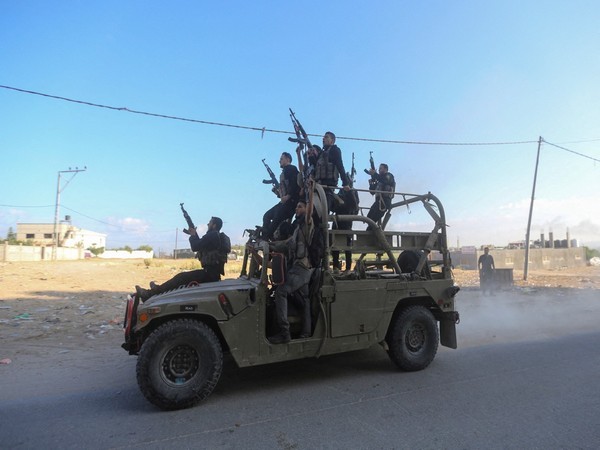
Fighting continues in Lebanon
Sep 27, 2024
Tel Aviv [Israel], September 27: Mutual attacks between Israel and the Lebanese Hezbollah militia continued on Thursday, with tens of thousands of people said to have been displaced since Israel began its massive bombardment of Lebanon four days ago.
Following months of cross-border skirmishes between Israeli forces and the Iran-backed militia, which says it acts out of solidarity with Hamas in Gaza, Israel began an intense aerial campaign to strike Hezbollah targets - with the region now on the brink of all-out war.
International efforts are under way to negotiate a ceasefire. But Israel denied it has agreed to any such plan, with the military saying a possible ground operation inside Lebanon could yet take place.
More than 600 people have been killed this week in Israeli airstrikes in Lebanon, according to the Lebanese authorities. Among them are more than 100 Syrian refugees, according to human rights activists.
A total of 70,100 displaced people are currently registered in 533 emergency centres, Lebanese Interior Minister Bassam Mawlawi said at a press conference in Beirut.
The exact number of internally displaced people in Lebanon is difficult to determine as many have fled to relatives. Others are sleeping on the streets.
The Israeli military said an airstrike near Beirut killed a senior Hezbollah commander who was responsible for the group's drone fleet.
The Israel Defense Forces (IDF) said air unit commander Muhammad Hussain Sarur was killed in the targeted attack.
A witness said the third floor of an 11-storey building was hit in the Jamous neighbourhood to the south of Beirut, an area considered a Hezbollah stronghold.
Lebanon's Health Ministry said at least two people were killed and 15 wounded in the bombing.
The strike took place close to where a high-ranking Hezbollah military commander, Ibrahim Akil, was killed last week.
The Israeli army was also continuing its airstrikes in the south and east of Lebanon. At least four people were killed in attacks near the border with Israel, according to the Health Ministry. State media mentioned around two dozen locations where attacks occurred overnight and in the morning.
The Israeli military said the air force had hit around 75 sites in Lebanon, including the Bekaa Valley in the east. It had specifically aimed at Hezbollah weapons depots and rocket launchers, it said.
In northern Israel, the western part of Galilee was attacked with 45 missiles from Lebanon, the Israeli army reported. Some of them were intercepted by the missile defence system, the rest fell in open areas.
The news site yet reported a rocket salvo on the city of Acre on the Mediterranean, with two people suffering shock.
Israel has also attacked infrastructure used by Hezbollah along the Lebanese-Syrian border, specifically routes used by Hezbollah to bring weapons to Lebanon via Syria, according to the army.
Four border crossings have been hit since Israel intensified its attacks in Lebanon on Monday, Lebanese security sources said.
The Syrian Observatory for Human Rights, which has been documenting violence in Syria since 2011, said Israeli warplanes attacked a border crossing in the area around the Syrian town of al-Qusayr, near the border with Lebanon.
The war monitor said several people were injured. It is the first Israeli attack on Syrian territory since Monday, the observatory said.
According to information from the war monitor, Hezbollah tried to use the border crossings to bring more fighters from Yemen and Iraq into the country.
They were supposed to come in the country to support the Shiite militia in the event of a feared ground offensive by the Israeli military, it said. As a result of the serious Israeli attacks in Lebanon, around 13,500 people have fled to Syria since Monday, most of them Syrian citizens, according to the Lebanese Interior Ministry.
An estimated 1.5 million Syrian refugees live in Lebanon.
While a group of countries led by the US and France is working to secure a deal for a 21-day ceasefire between the two sides, Prime Minister Benjamin Netanyahu rejected a report he has given the green light for the plan.
"The report about a ceasefire is incorrect," a statement from Netanyahu's office said. "This is an American-French proposal that the prime minister has not even responded to."
Source: Qatar Tribune









